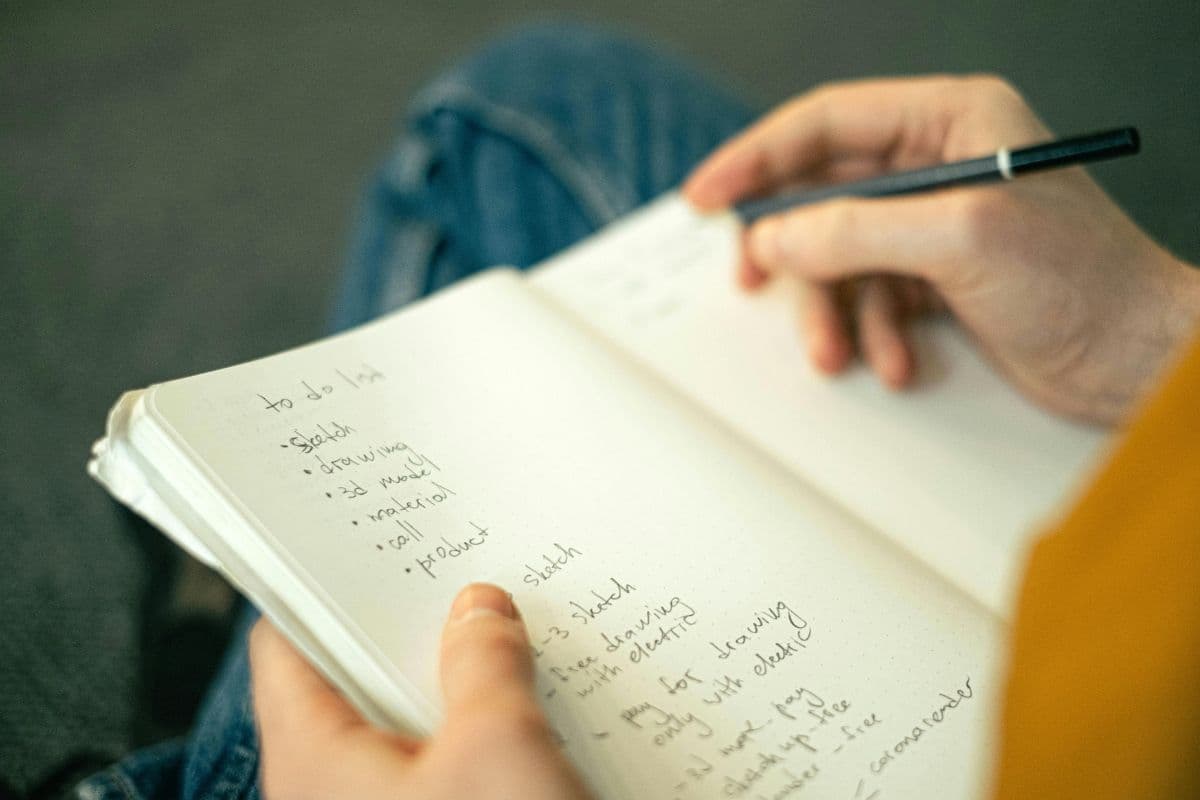
Is procrastination laziness? The hidden causes of procrastination and how to finally get rid of it
I'll do it in the afternoon. Oh, it's already noon, there's no point in getting started on this. So I'll start in the morning. But in the morning, instead, you're dealing with emails. And then you need to clean up.
How many times have you found yourself in a similar vicious circle? You blame yourself for doing it at the last minute again and feel like the laziest person on the planet. But procrastination is not actually laziness at all. And its cause is often somewhere else than where you would look for it.
Let's take a look at what's really causing it and how to get out of this endless procrastination once and for all.
What is procrastination? No, it's not really laziness
Procrastination is putting off tasks and obligations until later. Some people put off paying a fine until they get a penalty. Some people would rather clean their entire apartment than rush into creating an important presentation. Some people make doctor’s appointments for weeks…
But does this mean they are lazy? Irresponsible? Not really. Procrastination brings with it feelings of guilt, stress and anxiety. You really want to do the thing, but something is preventing you from doing it.
On the other hand, you can recognize laziness quite easily. You actually feel good about it. Unresolved obligations don’t interest you, they don’t stress you out. That’s the difference between laziness and procrastination.
Procrastination TEST: Is it procrastination or laziness?
You may be wondering if you really procrastinate or if you're just lazy. Many of us tend to blame ourselves, even when we don't deserve it. So let's take a simple test to find out. Answer these questions with YES/NO:
- It stresses me out that I procrastinate, but I can’t stop.
- I blame myself for not being as productive as others.
- I often think about all the things I have to do, and it makes my stomach churn.
- I can’t really relax – my head is always racing, even when I’m not doing anything.
- I feel like when I finish one task, five more pop up.
- I want to finally get it over with, but I have no idea where or how to start.
- Sometimes I even put off things that I actually enjoy and want to do.
- I know that I would be better off completing the task, but something is paralyzing me.
- Sometimes I don’t even know why I’m procrastinating or what exactly is stopping me from doing it.
- I really wish I could be more efficient and productive.
The more times you answered YES, the greater the possibility that you are really suffering from procrastination, which has little to do with laziness. But why does this happen when you don't really want to put off your duties? What always stops you? There may be more than one answer to this question, and some of them may surprise you. Let's take a look at them.

Causes of procrastination that aren't talked about much
You may have heard that the cause of procrastination is poor time management. And sometimes it really can be. But not always. There are many causes of procrastination and each one requires a different approach.
So before you pay for a motivational app or plan every minute of your day, come and discover your cause – so you can actually work on it.
1. Procrastination as an escape from unpleasant emotions
This is a little-talked-about cause, yet it's incredibly common. Many of us procrastinate because of how we feel about a task. It's not the task itself, but the emotions associated with it. We don't want to feel them, so we put off the task. What emotions are most often involved?
- Fear of failure. You are afraid that you will fail, so you prefer to postpone the entire task.
- Fear of evaluation. You are terrified that you might receive unpleasant feedback.
- Embarrassment. Maybe you’re thinking that you’ll embarrass yourself and everyone will immediately see that you have no idea what you’re doing.
- Feeling inferior. You feel like everyone else is doing better and you can't do it.
- Resistance to the task. The task makes no sense to you and seems pointless.
- Frustration. You've tried so many times. Why keep trying if it doesn't work out again?
- Regret and anxiety from the procrastination itself. You've been putting off the task for so long that you feel bad about it. So you keep putting it off so you don't have to face the regret.
- A feeling of being overwhelmed. There is so much going on that you don't even know where to start. It seems like a superhuman task. You know that as soon as you finish one task, another one will come. And that makes you tired and frustrated.
Procrastination, which is actually an escape from emotions, is pretty tricky. Often we don't even realize that emotions are behind it. So we force ourselves to be disciplined, install calendars and planners, but the results are nowhere to be seen. And this frustrates us more and more. This is because we are dealing with the effect, but not the cause itself.

2. Procrastination as a consequence of perfectionism
Perfectionism often doesn’t present itself as a problem – you want to do things right! But this very desire for perfection can paralyze you. You’d rather put off a task than not complete it 100%.
Maybe you’re waiting for the perfect conditions, afraid you’ll mess it up, or telling yourself that “you’re not ready yet.” But perfection doesn’t come. And the longer you wait, the more stress and regret you feel.
Instead, try to allow yourself to start imperfectly. Just write a quick draft, outline your presentation, go over your materials. Give yourself permission to make mistakes. Even a small step forward is better than waiting for the perfect moment that may never come.
3. Procrastination due to lack of energy
Have you ever tried really hard – you woke up early, made a coffee, turned on your laptop and were looking forward to finally getting started… But suddenly you found yourself with your mobile phone in your hand again?
Procrastination can sometimes have a very simple reason – fatigue. Sometimes you just don’t have the energy, even if you slept well at night. In such a case, it is important to do one fundamental thing: not to blame yourself.
Fatigue can have a huge number of causes. Sometimes it can be caused by hormones, other times by long-term stress, the phase of your cycle or even a lack of iron. First of all, try to drink enough water, get plenty of air and stretch for a while – this often helps. But most importantly, ask yourself: When was the last time I had a good rest? And isn’t it about time?
4. Procrastination due to different brain functioning
Did you know that procrastination can also be related to neurodivergence – the different functioning of your brain? This can be caused by, for example, ADHD, OCD or autism spectrum disorders. But there are many more possibilities. Most of us don’t even think that this could be our case – neurodivergence is not talked about much in adults.
This doesn’t mean that there is something wrong with you. But your brain may work differently and therefore need a slightly different approach. If you feel that this could be your topic, you can try our ADHD test or discuss your procrastination in therapy. A psychotherapist will advise you on what to do next.
Do you think that would still be a poor way of organizing your time?
Procrastination is usually combined with an escape from emotions, overload, overwhelm or fatigue.
But maybe you have the energy for tasks and once you start, they don't really stress you out that much. There are just so many of them that you don't know where to start. And so you don't start anywhere. In that case, it's really possible that you lack better planning and prioritization. Our article How to organize your time so you can finally breathe will help you with that.
How to find your cause? This will help you stop procrastinating
If you're still a little confused about what might be causing yours, that's completely normal. It often takes time to reach your AHA moment. But we're going to make it a little easier for you. Let's ask ourselves a few simple questions that can help you figure out the cause.
- How do you feel when you think about your procrastinating task? Try to explore this emotion in depth. You may feel anxious, but where exactly does it come from? From guilt that you procrastinate? Or maybe from not being able to complete the task perfectly?
- How do you feel when you imagine yourself doing the task? Think about what that image evokes in you. Shame? Fear? Or maybe disgust?
- What tasks do you complete without any problems? This question will help you if you can't answer the previous two. Try to remember the last time you grew over procrastination - and what did these moments have in common. How did you feel at that moment? How was it different from the tasks you put off? Maybe you had more confidence, more energy, or the task made more sense to you. THIS could be the mysterious thing you're missing when you procrastinate.
Once you find your cause, it will be a lot easier to work with. And you will also feel a huge sense of relief because you will realize that there really is nothing wrong with you.

8 practical steps to get rid of procrastination
Ready to get over procrastination once and for all? Our psychotherapists recommend these practical methods - just work on them step by step and the results may come soon.
1. Try to notice your emotions
It makes perfect sense that you can't just remember the specific emotions that are associated with procrastination. That's why so many of us go to therapy to figure them out. But you can learn to do it!
By paying attention to your emotions and always exploring where they might be coming from, you'll soon learn to recognize them. You can then work on the specific emotion that's causing your procrastination. It helps to write your feelings down on paper or say them out loud.
2. Work on your self-confidence
Try exploring our 9 steps to boost your self-esteem and finally start believing in yourself. Low self-esteem and procrastination often go hand in hand. Fear of failure, embarrassment, or just feeling bad about yourself can all contribute to procrastination.
Try making a list of things you’re proud of. Remind yourself that perfection doesn’t exist and mistakes are a natural part of each of us. It will also help you build self-love and be kind to yourself. You’ll find that when you don’t beat yourself up, life will be a lot easier.
3. Try to tone down your perfectionism
Are you waiting for perfect conditions, but they never come? Do you blame yourself for every little mistake, even if others may not have noticed it? Do you strive for perfection? Then perfectionism may be your theme. And that is a direct line to the procrastination station. Try to explore methods to get rid of perfectionism and finally breathe a little. You will see that you will feel relieved.
4. Set realistic goals
Maybe you actually do a lot, but you have such high demands on yourself that your to-do list never remains empty. Due to overwhelm and fatigue, tasks take much longer than you expected. Every evening you move them to the next day and feel like the biggest procrastinator in the world.
But maybe you demand more from yourself than you can possibly handle. Try to plan your day at a maximum of 80% of your capacity. Give yourself some space to breathe. Expect that sometimes you also have to put out fires and deal with urgent matters.

5. Does external pressure motivate you? You can try it
Some people work better under the threat of a deadline or peer pressure. If that motivates you, try creating external motivation – for example, tell someone else about your deadline or arrange to work at a coffee shop with your friends. But if deadlines are more stressful for you, you don't have to do it. It's perfectly okay that everyone needs something different.
6. Plan your time off purposefully
Sometimes, paradoxically, the best way to combat procrastination is to plan your time off. In today's fast-paced world, we all feel like we should be productive non-stop – but that's not what the human body is built for. Try consciously planning a break, where you completely ban work. You'll often find that you'll have more energy, a better mood, and even look forward to your tasks.
7. Connect the task with your values
When you associate a task with something that is personally important to you, the chances of you doing it increase.
Try to ask yourself: Why is this important to me? What will it bring me when I complete the task? When you imagine how a task relates to your values, such as caring for your family, personal growth, or a sense of satisfaction, motivation often increases. Suddenly it's not just a duty, but a step towards something you really care about.
8. Consider therapy
Procrastination is a perfect topic for therapy. Many therapists specialize in it. When choosing a therapist on Hedepy, just check the box that says you are a procrastinator. Confiding in another person often helps in itself. With a therapist, you will explore what causes your procrastination and gain tools to work with it. Clients regularly write to us that they felt relief after the first session.

What is the opposite of procrastination? No, it's not peak performance
Getting rid of procrastination doesn't mean you have to be more productive than ever and complete all tasks ahead of time. The opposite of procrastination is balance - that's what we so often lack when we procrastinate. Being calm, having compassion for ourselves, allowing ourselves to rest and not blaming ourselves when something doesn't work out. THAT is the goal to aim for.
Therapy can help you with procrastination
Come discuss your procrastination in therapy – online, from the comfort of your favorite chair with a cup of tea. You can have your first session in just a few days.
At Hedepy, among many verified psychotherapists, you are sure to find the right one. To make it easier for you, we will recommend the most suitable therapist based on a 5-minute test.
Thinking about therapy?

My First Therapy: How to Prepare and What to Expect

What is psychotherapy? And who is it for?



